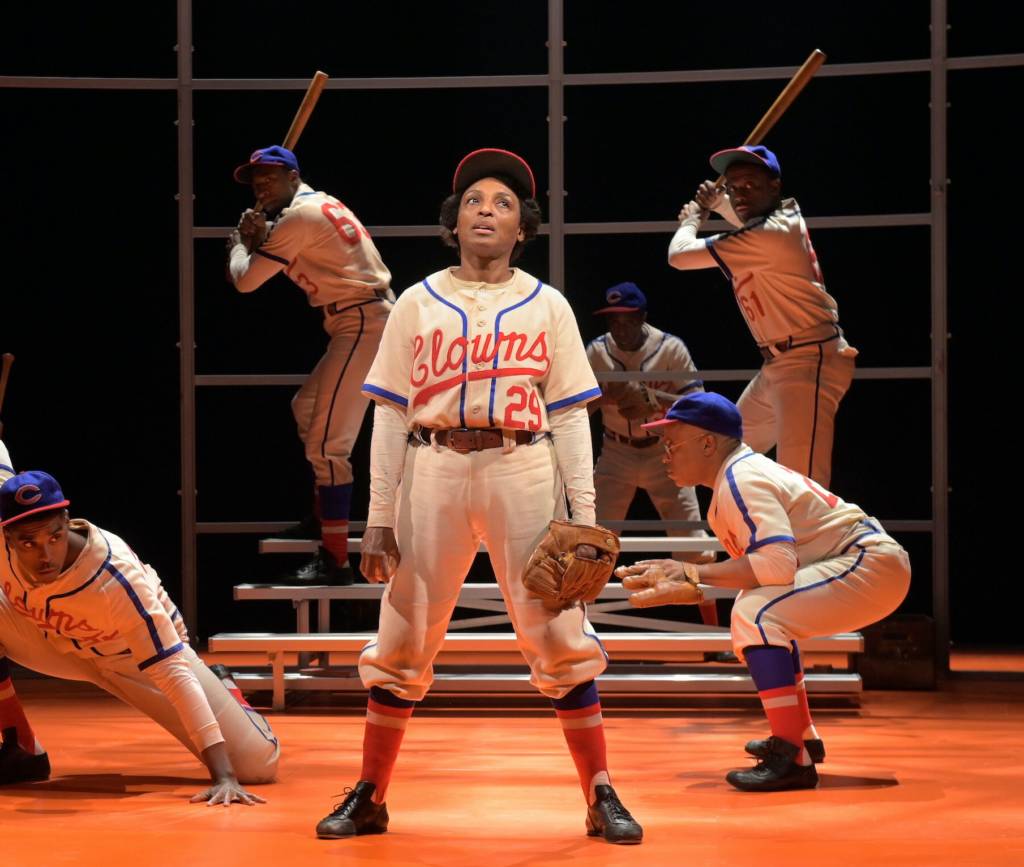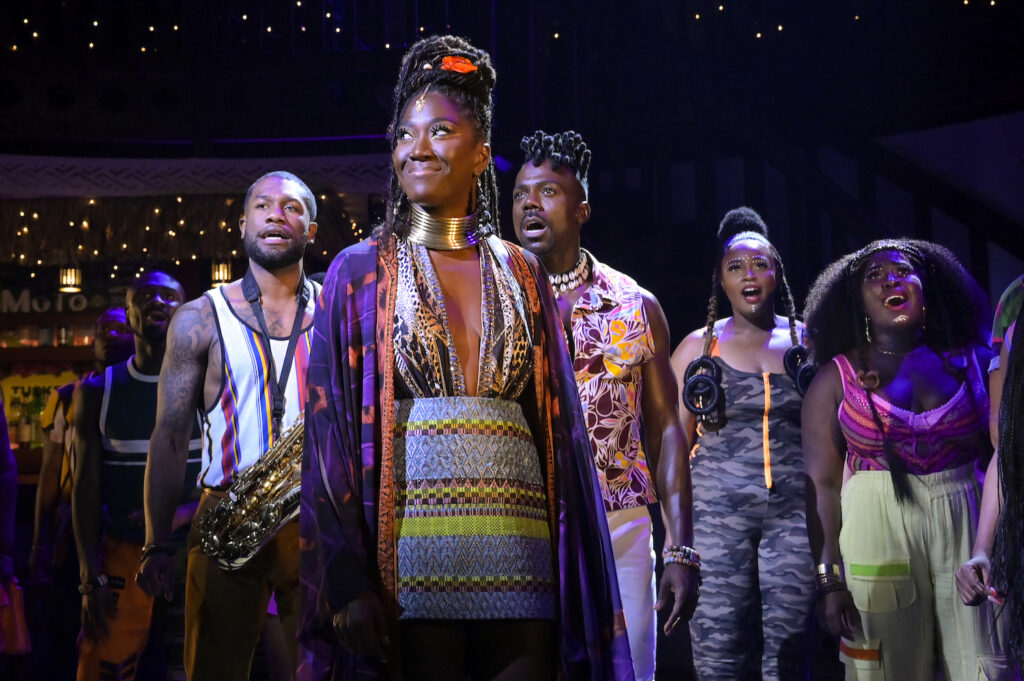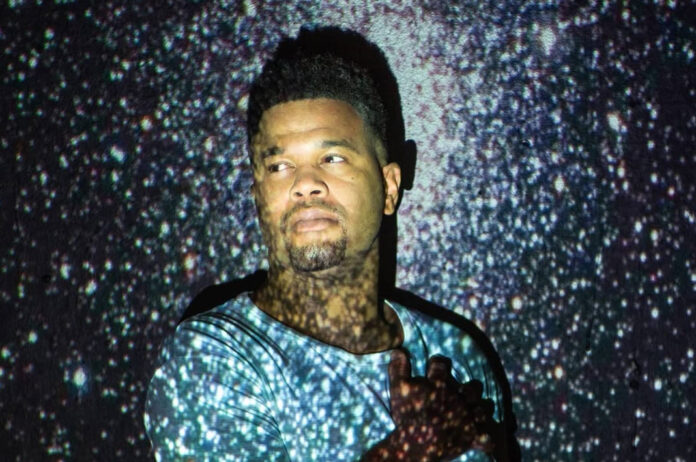This is Drama Masks, a Bay Area performing arts column (full of mad ramblings, Oxford commas, and “theatre” with an “r-e”) from a born San Franciscan and longtime theatre artist in an N95 mask. I talk venue safety and dramatic substance, or the lack thereof.
Remember 2018? I know, it seems like a lifetime ago. That’s when Starbucks got called out for a series of racially motivated incidents kicking out Black patrons. The PR was so bad that they shut down all their stores for discrimination training, as part of a new companywide DEI policy. As a lifelong Starbucks-hater, this was just another reason to avoid them. But I’ll never forget the hilarious sight of walking by the now-closed 201 Powell location as someone–head buried in her smartphone–made a beeline for the store. When she tried to push the locked door, I swear her brain to broke.
Despite all of its cringe-y virtue-signaling—like Coke and Budweiser, Starbucks is frequently targeted by right-wing cry-babies as “too woke” for pink-washing during PRIDE or removing the snowflakes from Xmas cups—the ubiquitous coffee chain has never been on the side of the proletariat. The firm’s long been notorious for both its shitty treatment of employees, its pro-Israel cowardice, and its union-busting skullduggery—to name but a few transgressions. Starbucks’ loyalty to “the people” extends only to its shareholders.
What does this have to do with theatre?
Well, two years after that policy change came the one-two punch of the COVID pandemic (which isn’t over) and the murder of George Floyd. The former set off “The Great Resignation,” while the latter led to one of the boldest racial reckonings in US history. Seemingly no industry was left out: The same NFL that fired Colin Kaepernick now had coaches taking knees, sci-fi fanboy fave Joss Whedon was outed for being the racist (and misogynist) he is, and even Castro mainstay Hot Cookie found itself under the spotlight! Plus, the theatre industry got an overdue call-out by marginalized artists through the nationwide “We See You, WAT (White-American Theatre)” campaign.
WeSeeYouWAT was most likely influenced by the Bay Area’s own Ely ‘Sonny’ Orquiza’s notorious Google Doc that same summer: the “Living Document of POC Experiences in Bay Area Theatre Co[mpanies].” That online open forum allowed marginalized local theatre artists to go “scorched Earth” on many of the most revered companies, executives, and critics. One is hard-pressed to think of a sacred cow that wasn’t slaughtered.

As a journalist reporting on all this as it happened, I remember having mixed feelings. I remember chuckling from schadenfreude as known racists were fired or removed from boards. I remember rolling my eyes at a whitesplaining director, one who once flooded my Inbox because I called out her racist direction, now claiming she’d always been about amplifying PoC voices. (I have archived e-mails proving otherwise.)
I remember foolishly allowing myself to imagine maybe—maybe—this could lead to an actual sea-change; that George Floyd’s suffocated body, and the shockwave resulting from it, might actually lead to the diverse representation we marginalized theatre folk have been pushing for our entire lives and careers.
I remember another part of my brain thinking that was a stupid idea; that having lived through Rodney King being an occasional press event to the Trayvon Martins, Mike Browns, and yes, George Floyds being reported on regularly without any change. Hell, Floyd’s murder preceded that of Breonna Taylor, a first responder protecting people dying of COVID. If that’s how Black people are treated during a generation-defining pandemic, why should I expect theatre to do any different?
What’s more, I know first-hand how bad most of Bay Area theatre is at responding to these issues. Even at the indie level, it’s still ruled by self-righteous white elitists who consider themselves more adept at commenting on the lives of marginalized people than the actual marginalized people. ‘Cause if your trust-fund baby education allowed you to travel well, surely that makes you an expert on the lives and thoughts of colored people, right?
Back then, whenever someone told me they’d read one of my reviews, I’d self-deprecatingly respond that I was surprised anyone has read anything I’ve written. It didn’t take long for me to notice that PoC theatre folk were always the most eager to hear my opinion. They’re always the ones who are willing to forego proper press reps and reach out to me directly, sometimes actively begging me to come see their shows. “We need non-white eyes in the crowd.”
As I’ve spent the past five years privately charting the progress (or lack thereof) made by theatre companies who promised to change, the fact that I seem to still be the only PoC theatre critic doesn’t give me confidence for change on either side of the stage.

In fact, I expect it to get worse. You’ve probably read about how, in the lead-up and aftermath of the election, major firms (and now the government) have been dropping DEI programs left-and-right: Amazon; Facebook; McDonald’s; etc. Even if the policies were just for show, they were years in the making and did put more diverse faces on the Staff pages of these horrible companies. All of that’s been undone overnight.
Yes, that includes Starbucks. Without blinking an eye, they gutted the very DEI program that stopped their company cold in 2018.
Will Bay Area theatre do the same? Will larger organizations like ACT, SF Symphony, or BroadwaySF share the load carried by OTP, La Lengua, and SF Mime Troupe? Will SFMOMA stick to fixing the racism accusations that have dogged them for years? Will everyone paying lip service to preserving diversity still do so with no one looking over their shoulders?
The answer may lie in these two words: “COVID pandemic.” Oh yeah, I’m back on my bullshit!
From 2020-21, we had some amazing COVID protocols that allowed us all to return to theatre without severely compromising our health and safety. But even then, we heard about board members trying to order an end to the policies. We heard about actors whining because scripted kissing scenes required daily testing. It sure as hell didn’t help matters when an unmasked London Breed mocked maskers to our faces.
When Biden declared the pandemic “over” in September 2022, it wasn’t due to diminishing numbers; he wanted to placate anti-maskers. He did this when numbers were at record highs. They’re still at record highs, but you wouldn’t know it because nearly ever metric for gauging infection has shut down. It’s easy to make numbers look low when you simply don’t count.
And during it all, theatre companies have nonchalantly erased all safety measures, falling back on the excuse of “following local guidelines.” Let’s put that into context. Right-wing nutcases say abortion (and slavery, for that matter) should be an issue of “states’ rights” rather than a nationwide policy; yet, what they really mean is that it shouldn’t exist at all. How’s that “states’ rights” policy been working out since Roe v. Wade?
So, when theatres won’t even do the bare minimum (masking audience and staff, testing cast and crew) to keep their patrons safe, what makes you think they’ll stay committed to diversifying their audiences and creative staff? No, what many will do is take the same approach to diversity that they take to COVID and fall back on “local guidelines” BS. Remember, we also lost Affirmative Action. (Thanks for nothin’, Biden.)
I unfortunately a major backward slide into the sort of lily-white theatre we spent the past five years trying to escape.
But I’m not going anywhere. Last year, a major SF theatre company blacklisted me from their press list because—get this—they hated the way I talked about race in a review of one of their shows. I nearly fell over laughing when I heard that. This company—prominently excoriated in the “Living Document,” but still lead by its white founders/creative heads—hates that the only Black theatre critic in the Bay Area has the nerve to talk about race. Fancy that.
I’m still going to talk about race. In fact, I plan to do a lot more to hold theatre companies accountable for the diversity promises they made years ago. (Same for theatre critics, if you catch my drift.) Try as they might, it’ll take a lot more than sticking their heads in the sand to make us give up the strides we’ve made.
We’ve come too far to go back. And please don’t shop at Starbucks—drink local brew!







